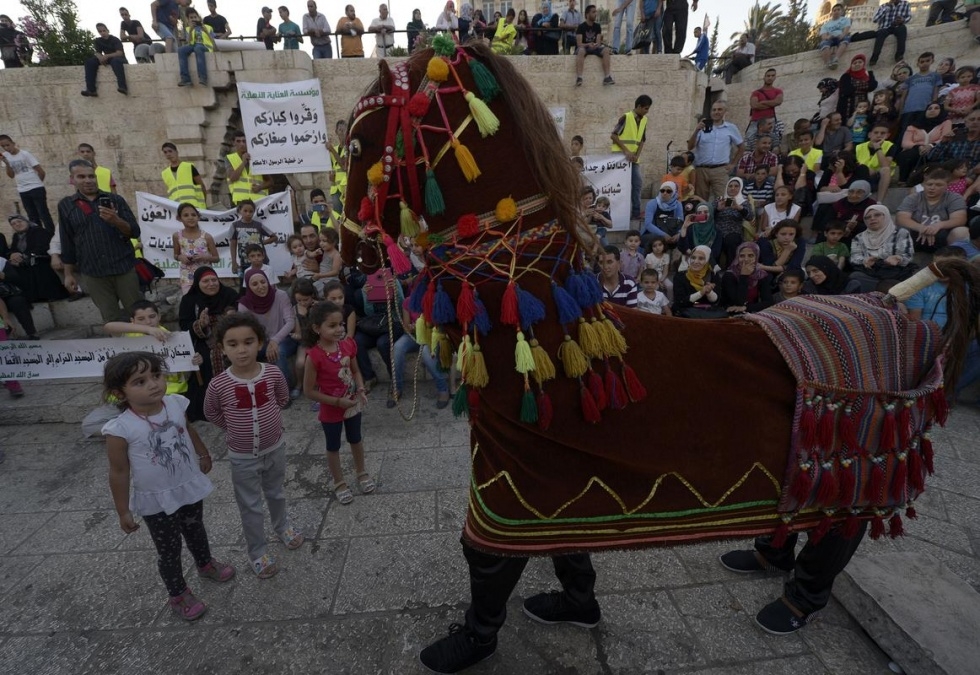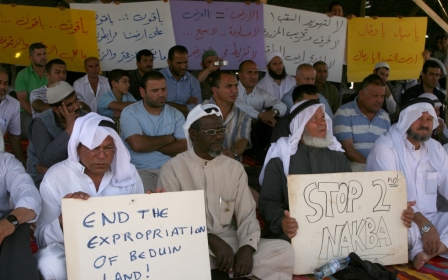Israel tightens hold on East Jerusalem

The Israeli cabinet has approved a $90 million dollar socio-economic development plan for annexed east Jerusalem which focuses on increased security and police presence in the area, the municipality said.
The plan, passed on Sunday, also has "the declared purpose of thwarting any possibility" of the city being divided under any future peace agreements and would more tightly link around 300,000 Palestinians living in the area with the Israeli state, according to Israeli newspaper Haaretz.
The new plan, formulated by Israeli settlers in top government positions, is a sign of the increased control settlers hold over the government’s policy.
Violence in the area will be curbed "by means of integrated activity to reduce gaps in infrastructure, employment, education and social welfare and by boosting enforcement and personal security," said a statement from city hall.
Scheduled to be implemented over the next five years, the plan involves an increase in the number of policemen working in east Jerusalem as well as a greater number of security cameras.
"According to Israel police assessments, the plan will lead to a significant decline in the short- and medium-term of over 50 percent in displays of violence," it said.
Police figures quoted by the municipality indicate that in March and April, there were 390 incidents of stone-throwing at the security forces and vehicles in east Jerusalem, as well as dozens of cars stolen and break-ins.
"These are offences with nationalist characteristics that are not perpetrated in a similar scope in other parts of the country," it said.
"The basic assumption for the civic aspects of the plan is the existence of a deep link between the scope and level of violence by residents of eastern Jerusalem and the standard of living in neighbourhoods in the eastern part of the city.
The action plan was put together by an inter-ministerial committee which did not make any connection between the rise in violence and the deadlock in the peace process, Haaretz said.
Around 306,000 Palestinians - or 38 percent of the city's overall population - live in east Jerusalem, whose civil status is that of residents, not citizens, according to figures provided by the municipality.
Israel seized control over the Arab eastern sector of Jerusalem during the 1967 Six Day War and later annexed it in a move that has never been recognised by the international community. It refers to the entire city as its "united, undivided" capital.
But Palestinians want the eastern sector of the city as a capital of their promised state, with the city's future one of the biggest issues of the conflict.
Almost all Palestinians living in east Jerusalem hold permanent residency status, meaning they have Israeli IDs but not passports.
They are entitled to all the insurance benefits of Israeli citizens and can vote in municipal - but not national - elections. However, most Palestinians boycott these elections, rejecting Israel’s annexation of east Jerusalem.
They have freedom of movement within the country, unlike their compatriots in the West Bank and the Gaza Strip, who cannot enter Israel without special permits that are hard to obtain.
The left-leaning Haaretz newspaper said the move was aimed at "tightening Israeli control of east Jerusalem and strengthening the connection between the 300,000 Palestinians living there and the State of Israel."
There are more than 200,000 Israelis living in settlement neighbourhoods in annexed east Jerusalem and the Israeli government does not see construction there as settlement building but under international law the settlements are considered illegal.
New MEE newsletter: Jerusalem Dispatch
Sign up to get the latest insights and analysis on Israel-Palestine, alongside Turkey Unpacked and other MEE newsletters
Middle East Eye delivers independent and unrivalled coverage and analysis of the Middle East, North Africa and beyond. To learn more about republishing this content and the associated fees, please fill out this form. More about MEE can be found here.


